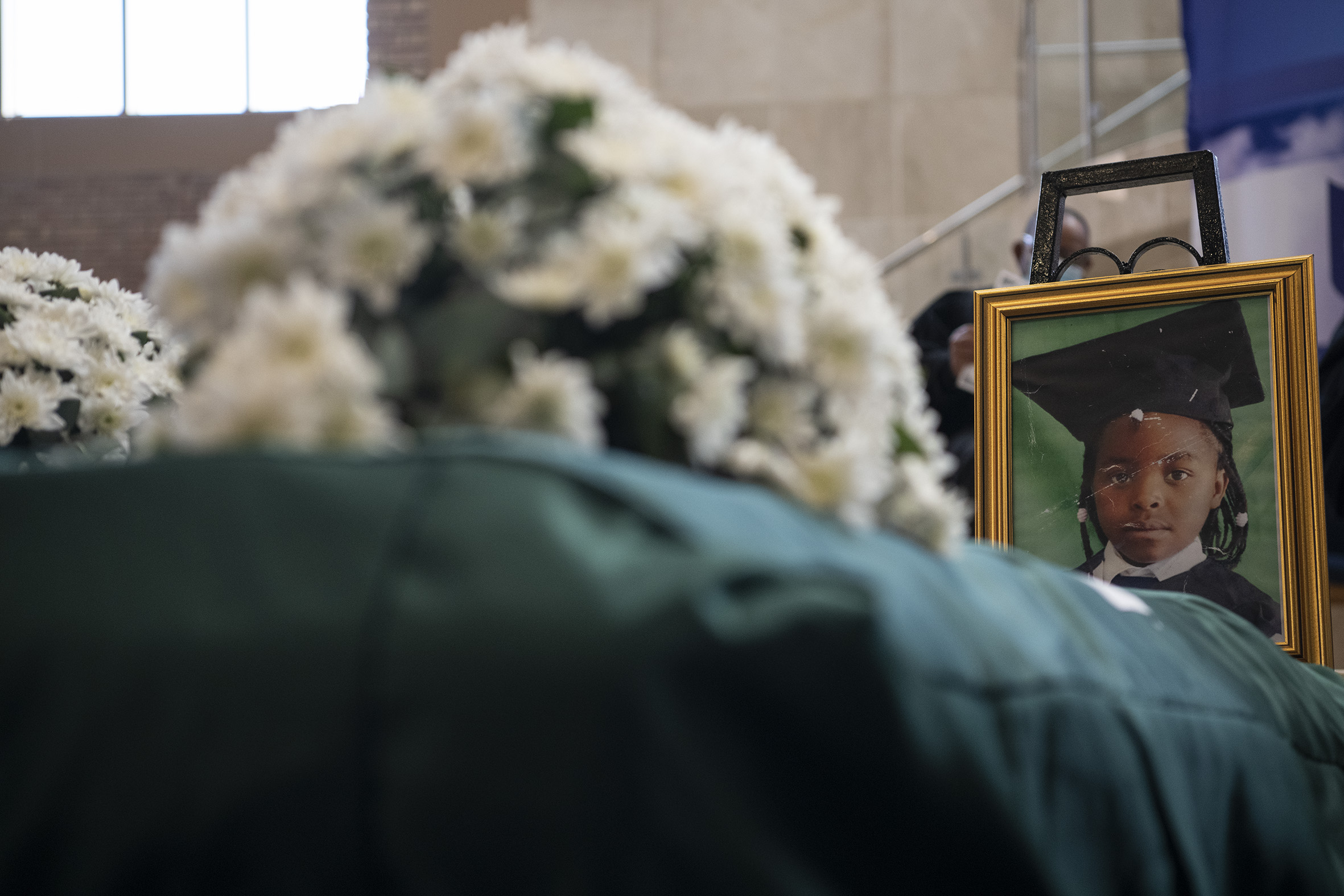Burials bring more pain for Durban flood victims
For impoverished families who have not received the promised government assistance for funerals, burying their loved ones has been yet another difficult and heartbreaking challenge.
Author:
29 April 2022

It is a chilly Saturday morning in a church hall made from corrugated iron in Hammarsdale township, west of Durban. Women are sitting on chairs and pieces of foam lined against the wall while some children are playing outside. They are among the thousands of people who have been left homeless and bereaved by the recent floods in parts of KwaZulu-Natal.
Lindiwe Jileka, 58, has experienced every mother’s worst nightmare: losing a child. Her loss is compounded by the deaths of four of her grandchildren, who also died in the floods.
On 11 April, her daughter Bonakele Jileka, 38, was sleeping in a bedroom with two of her three children, Yenzokuhle, 10, and Elimiyo, 2, in their home in Hammarsdale. Lindiwe was sleeping in another room with two of her grandchildren, Akhile, 13, and Zekhethelo, 10, whose mother Sindiswe, 38, was at work. The family heard a sudden thump as the walls collapsed and water rushed in, carrying with it large rocks and pieces of steel from the railway line behind their home. The family who share a yard with the Jilekas rushed over to help. They could pull out only Lindiwe.
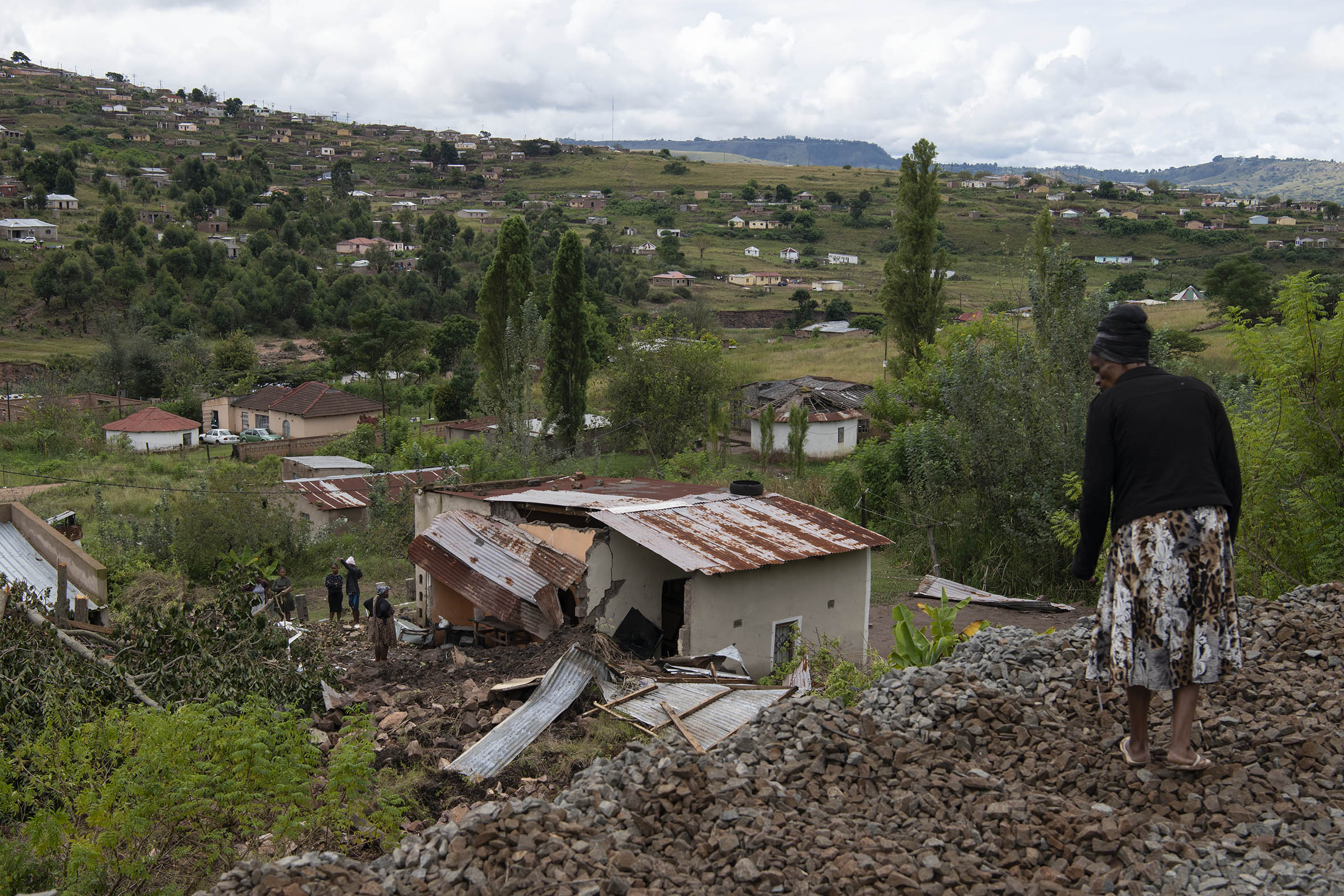

She and her family felt a measure of relief when they heard the government would provide money to help with funeral costs. But those promises have not materialised, forcing her to scramble to find the money elsewhere.
The Jileka family is one of more than 12 000 families whose houses partially or completely collapsed in the floods. “We don’t know what’s going on right now,” said Nontobeko Ngcobo, 34, Lindiwe’s daughter. “We were told the government would provide R15 000 for each deceased person, then they said it was R20 000. The local councillor came here and asked us for documents, including bank details, and he said the money will be in within 24 hours.
“The next thing we hear is that money will be sent to burial companies instead. Now our issue is we were covered with Icebolethu Funerals. Bonakele was paying premiums that covered her and her two deceased children, so if that R60 000 is sent to the funeral home it doesn’t help us with anything [because Icebolethu was going to cover the funeral costs anyway from their premiums].”
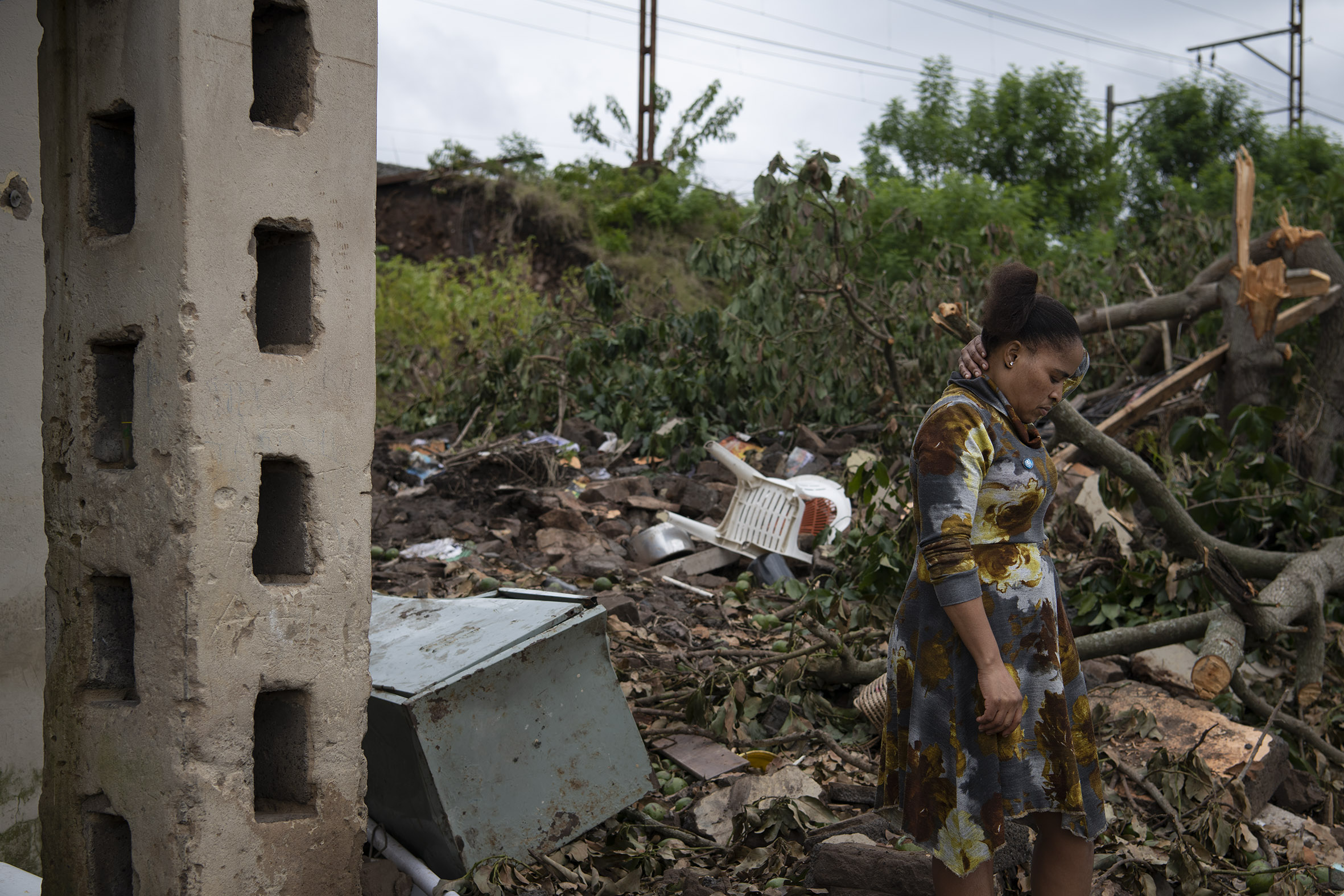

According to the family, Icebolethu Funerals asked for R18 000 to bury Akhile and Zekhethelo as their mother didn’t have any funeral cover. They found it difficult to raise the money and had heard no word on the progress of the government funding.
The local ward councillor, Malulu Sikhakhane, said he doesn’t agree with the decision to pay funeral companies directly. “Our people are struggling now and it makes the councillors look bad, but we were just writing reports on those affected and other decisions are made at the top,” he said.
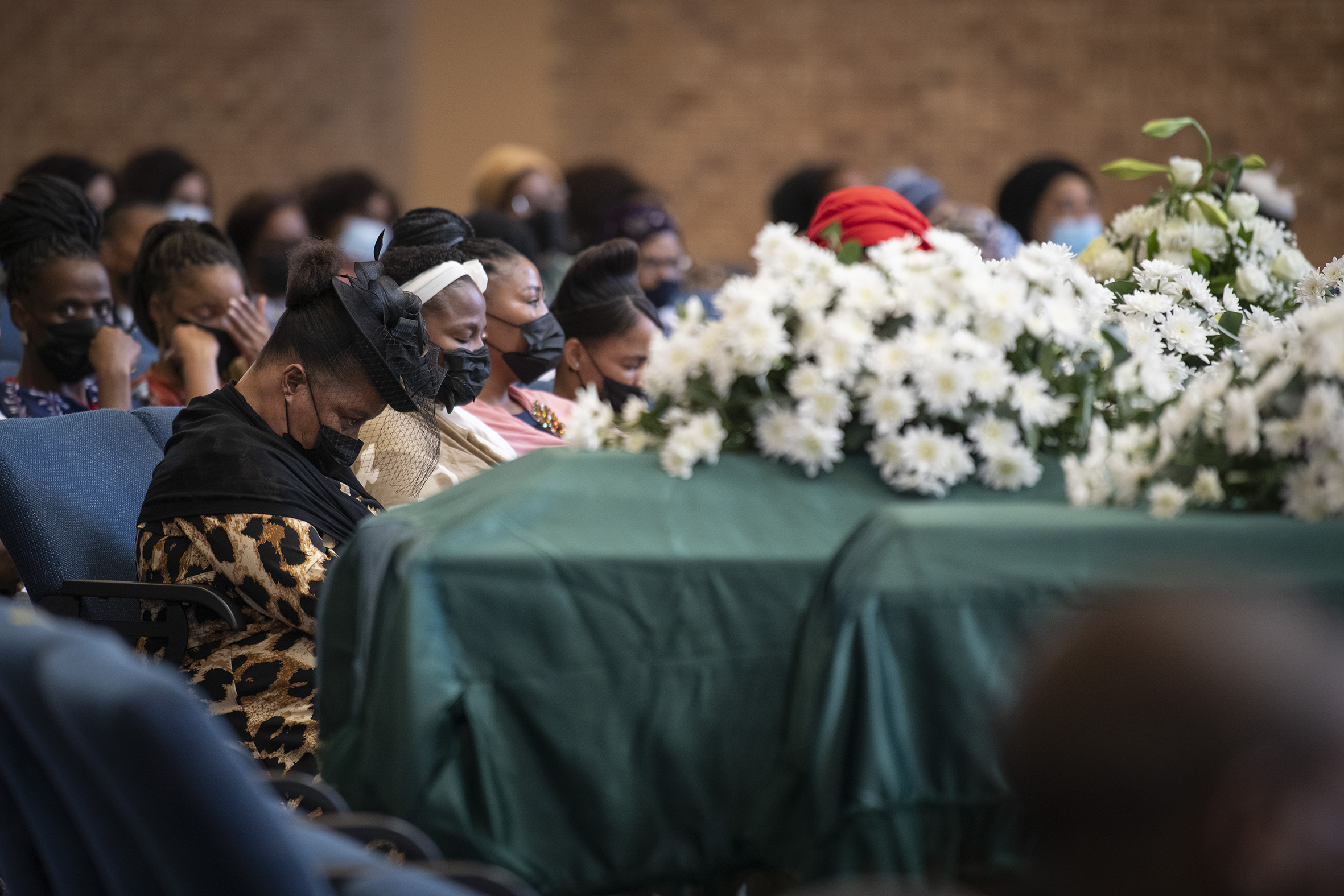



So much loss
Nontobeko said the loss of their family home meant they could not observe several important rituals. For example, they had to slaughter the cow at the farm where it was bought and not at the family home, which meant they could not burn impepho (incense) and inform the ancestors what the cow was for. In normal circumstances, this would only happen at the family shrine (umsamo). In addition, this added to their expenses as, without electricity after the floods, they had to rent cold storage to preserve the meat for the funeral.
“Everything was lost when the house was flooded, so the clothes for the children to wear in the coffins are under the rubble. All we ask is that the government assists us with that money so we can finalise everything for the funeral and see where we go after the funeral,” she said.
On Sunday 24 April, the Jileka family could finally put aside their worries and mourn their loved ones. The funeral took place at the Church of the Holy Ghost in Peaceville Mission, Hammarsdale, and people turned out in their hundreds to mourn along with the Jilekas. Those present included the national chairperson of the IFP, Blessed Gwala, Zulu royal family members and KwaZulu-Natal premier Sihle Zikalala. The money for the funeral came from fundraising and a donation by Gwala.
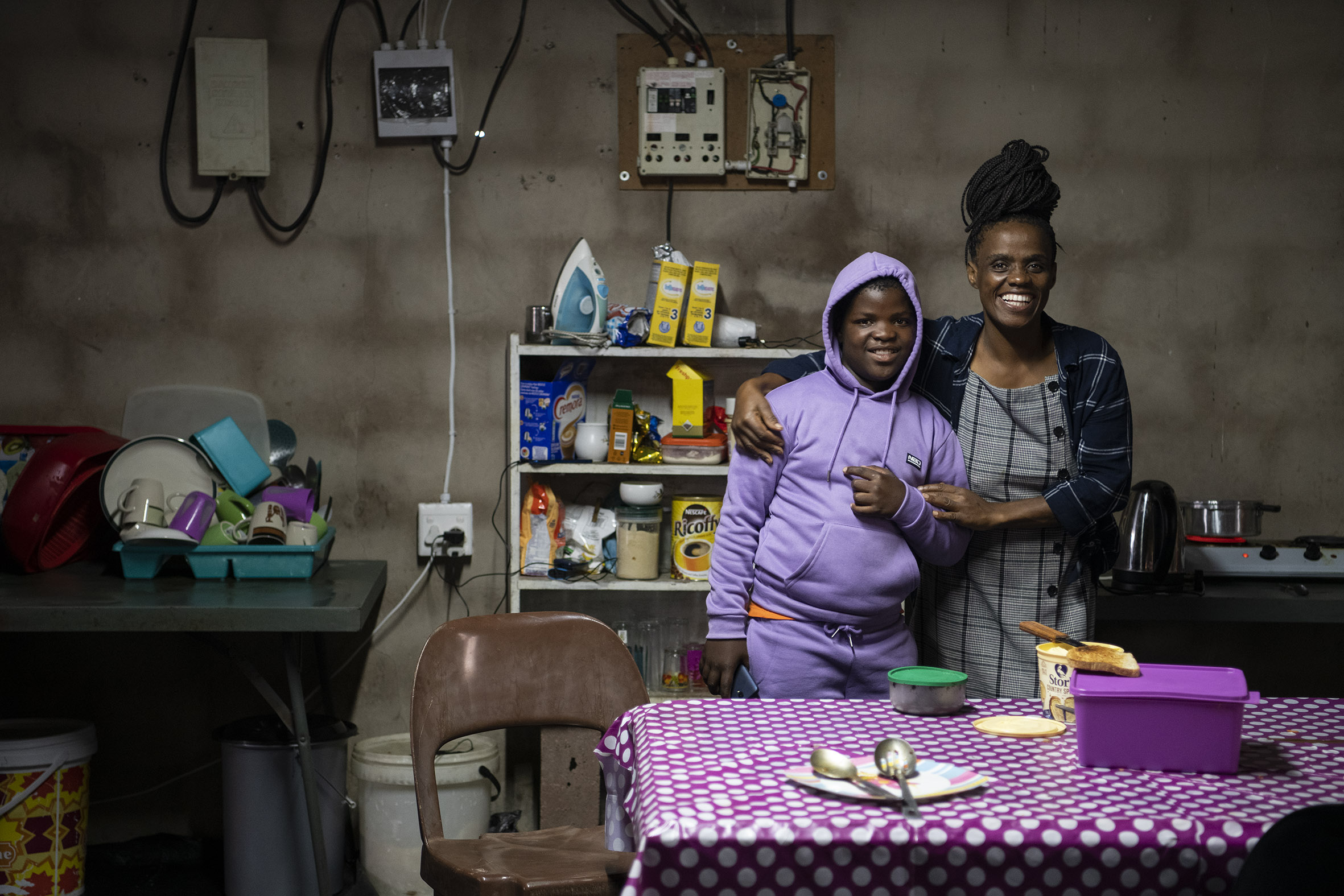

Nontobeko, who gave a speech on behalf of the family, said: “We want to say rest in peace to our sister and our children. We were not a rich family, but we were happy together. We are consoled that you left Junior [12] with us here. He is ours. Ze, Nana, rest in peace, babies.”
Lindiwe penned a short message that read: “I don’t have words. I am out of words because of the amount of pain I have felt. I will never forget it. I have to accept and say go well because I saw your lives perish right in front of my eyes, so I can only say farewell and rest well, my daughter and my grandchildren.”
Bonakele had recently graduated from Coastal College with a diploma in electrical engineering. Her lecturer and friend Sinenhlanhla Ngcobo described her as dedicated, generous with her time and knowledge, and a pillar in her classroom.
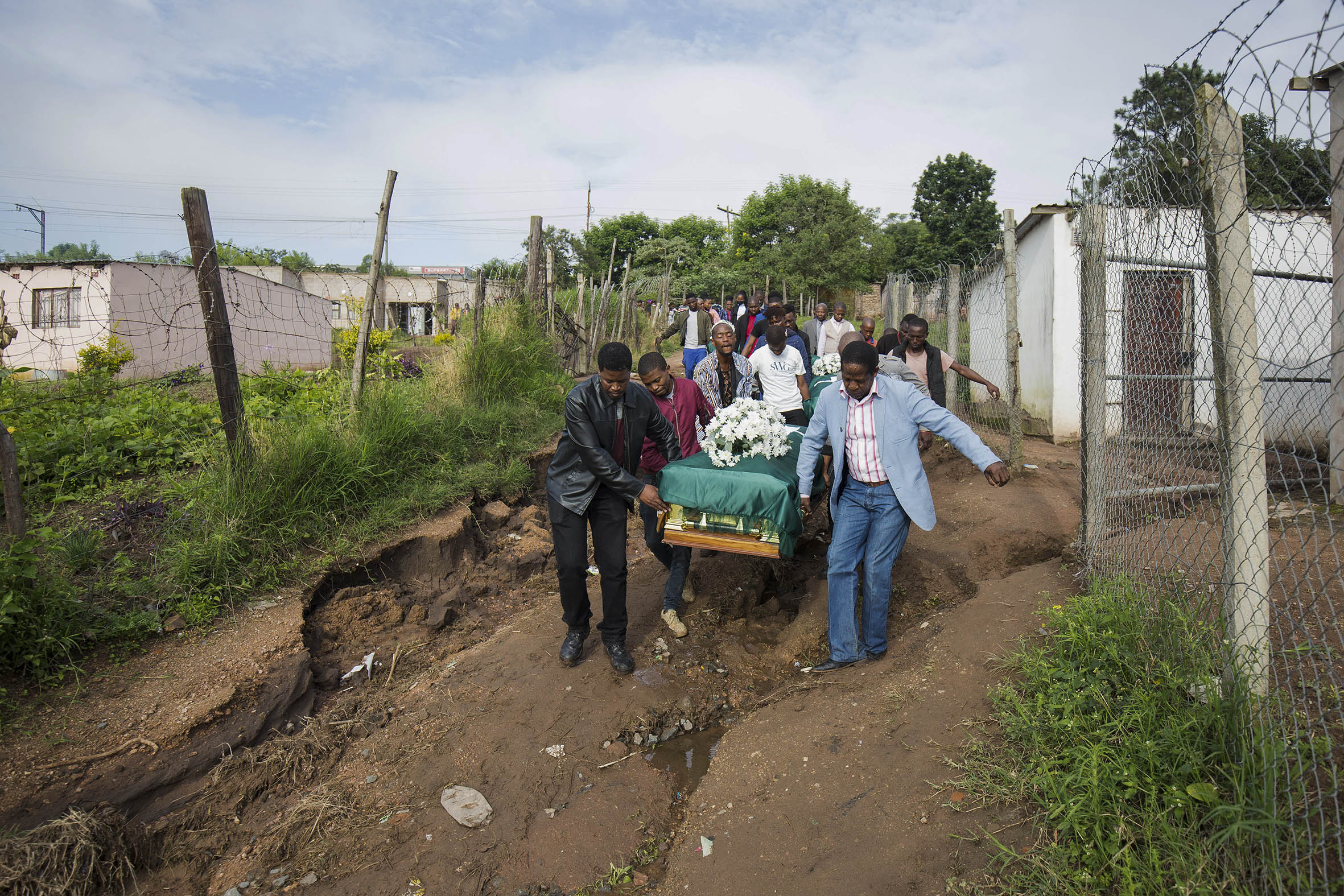

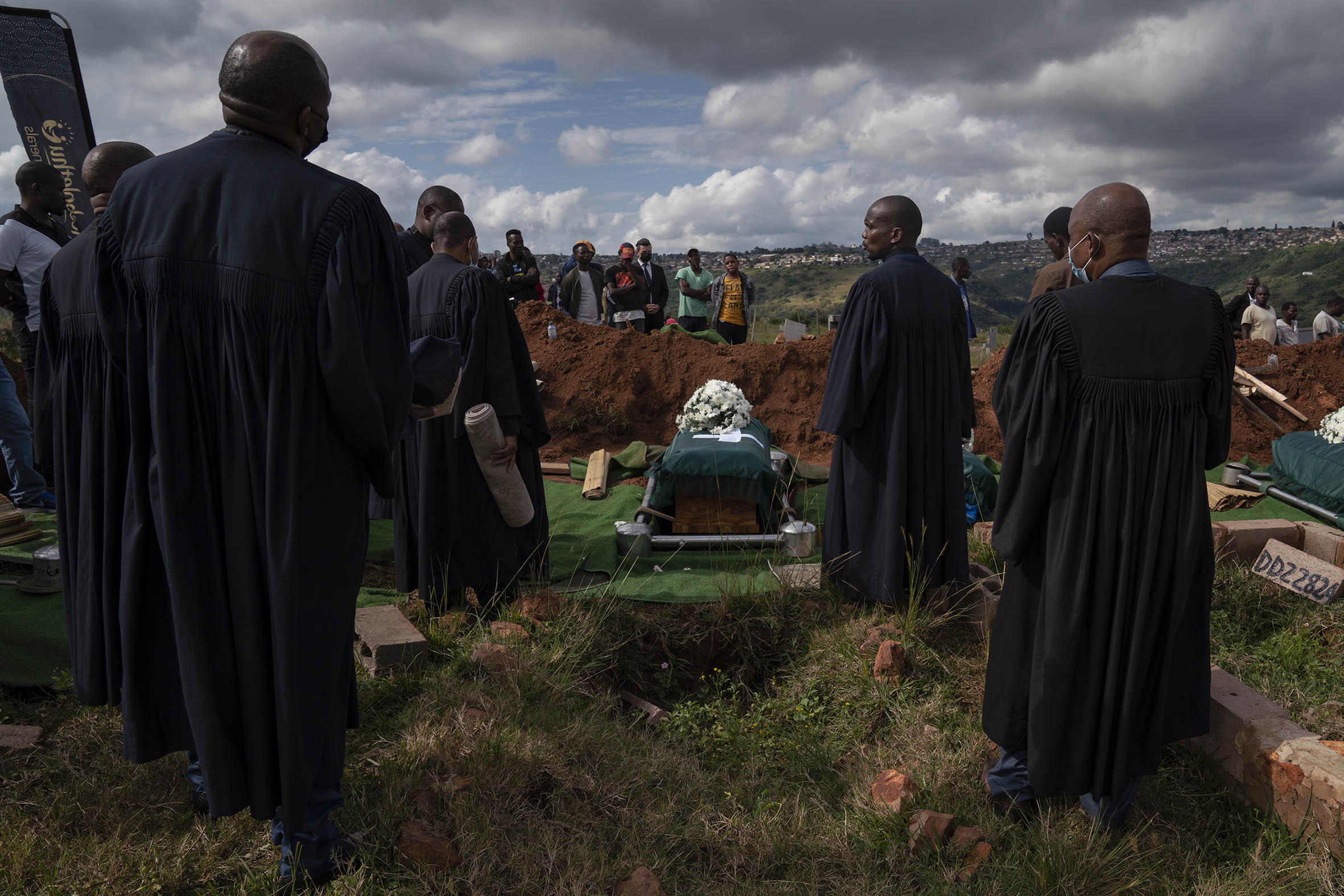

Zekhethelo and Yenzokuhle were taking karate classes and their friends described them as full of life. “They were the kind of people that greet you with a punch on the chest. We would always laugh with them but they took their karate classes seriously, always practising. We will miss you Ze and Nana,” they said in a group tribute.
Zikalala said the family needs support and is concerned for the future. “The church has conferences and people will need this hall soon. We can’t go back to that house because it’s destroyed and holds bad memories for us. We don’t know where to go from here and with what,” said Nontobeko.
Naledi Sikhakhane is the 2022 Eugene Saldanha Fellow in social justice journalism.
Correction, 24 May 2022: The Eugene Saldanha Memorial fellowship is supported by the SET. It was incorrectly referred to as a fund.
